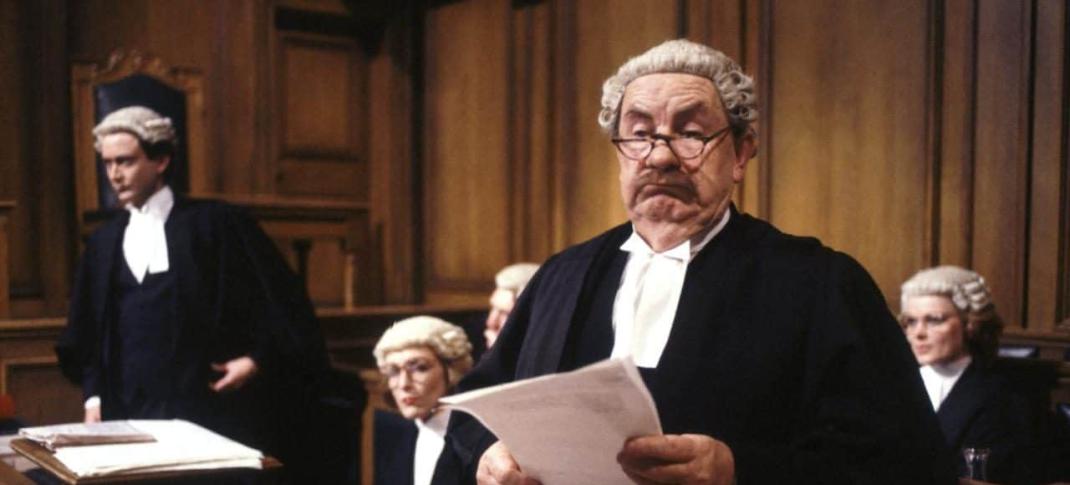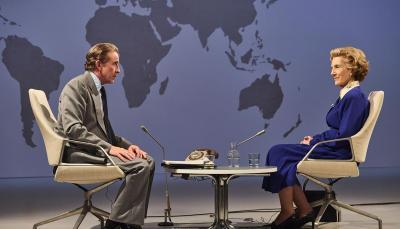6 Classic British Mysteries You Probably Haven't Seen

Mysteries are a comfort genre. These are soothing stories of the intelligent detective taking a chaotic situation (usually murder most foul) and restoring order by puzzling out the whodunit. In troubled times, readers and viewers turn back to this genre because they want to see smart people using their intelligence for the good of society. It speaks volumes that our current era has taken back up with them, with Knives Out becoming the biggest sleeper hit of 2019.
PBS has long been airing adaptations of classic 20th-century mystery stories under the Masterpiece Mystery banner. The series has been going since 1980, back when the program was known simply as Mystery! and aired on Thursdays with Vincent Price and Dame Diana Rigg as hosts. Some of these series have gone on to become classics of the genre, like the Jeremy Brett Sherlock Holmes series or David Suchet's character-defining take on Agatha Christie's Poirot.
But there are many more great series lost in the sands of time. For those stuck at home, looking for the old school comfort of mystery television, here are some of those favorites from decades past you might want to check out.
Lord Peter Wimsey
There have been two Lord Peter Wimsey series based on the beloved Dorothy Sayers mystery novels from the 1920s and 30s. The 1970s era adaptations (which ran on PBS, but not under the Mystery! banner) starred Ian Carmichael. It covered most of the early Sayers stories from the pre-Vane era, including Clouds of Witness, The Unpleasantness at the Bellona Club, Five Red Herrings, Murder Must Advertise, and The Nine Tailors.
But it's the 1990s series that is considered the defining Wimsey TV series, starring Edward Petherbridge as the detective and Harriet Walter (Killing Eve) as the love of his life, Harriet Vane. These only cover the three main Vane stories, Strong Poison, Have His Carcase, and Gaudy Night, but they're worth every minute.
Agatha Christie's Partners in Crime
Everyone knows Miss Marple and Poirot, but for those who are into diving deeper into her lesser-known detectives, there's Agatha Christie's Partners In Crime, the Tommy and Tuppence stories. There are far fewer of these than the Poirot or Marple entries. Still, there's a different delight to them. Unlike the staid Poirot or the old biddy Marple, Tommy and Tuppence are of the Bright Young Things set of the roaring 20s. They have their fingers on the pulse of the society like they have their fingers on the pulse of murder.
The BBC recently attempted a Partners in Crime revival starring Jessica Raine (Call The Midwife) and David Walliams, but it lent far too much into the gritty realism that was so in vogue in 2015. Fans who want to discover the joy of the series should check out the mid-1980s adaptations starring James Warwick and Francesca Annis, in all their campy 1920s era glory.
Dalgliesh
Dalgliesh is a series based on the P.D. James novels starring Detective Chief Inspector Adam Dalgliesh. Like Wimsey, this is another series with two different adaptations, covering most of the 14 books printed between 1962 and 2008. The first series, which starred Roy Marsden as Dalgliesh adapted the first ten, and aired on ITV and PBS during the 1980s and 90s. They are the more intense of the two series, but also less than faithful to the novels as they could be, as ITV did not adapt them in chronological order. They include Cover Her Face, A Mind to Murder, Unnatural Causes, Shroud for a Nightingale, The Black Tower, Death of an Expert Witness, A Taste for Death, Devices and Desires, Original Sin, and A Certain Justice.
The newer series was done by the BBC and covered two of James' last four novels, with Martin Shaw in the title role. Like Wimsey, the second set, which adapts Death in Holy Orders and The Murder Room are the more romantically minded, as these two novels involve Emma Lavenham, played by Janie Dee, who Dalgliesh eventually asks to marry him.
Campion
If you're looking for a little more upper-class detective, but with a comedic flair, there's Campion. The novels, written by Margery Allingham starting in the 1930s, are rumored to have been inspired by the Sayers novels, with Campion as a parody of Lord Peter himself, complete with a bruiser-butler named Magersfontein Lugg. But they soon took on a life of their own, with 18 novels all told. Even though the character of Albert Campion matured into his own man, the comic elements never wholly leave, and the Peter Davison (All Creatures Great and Small) adaptation from 1989 plays them up.
For fans of Davison's Fifth Doctor, there are elements of his take on Doctor Who interwoven into the Campion performance, a bit like if the Doctor woke up one day and decided to be a 1920s-era upper-class detective. And paired with Brian Glover as his manservant, the series is always a delight. Davison even sings the theme song in the first season. The series covers eight books, four per season, two episodes per novel.
Maigret
Based on Georges Simenon's novels and his fictional French detective, Jules Maigret, this Michael Gambon-led series from the early 1990s is one best Mystery! ever offered. Like Poirot and Holmes of the era, it is considered the defining adaptation of the novels. Maigret ran two seasons, six episodes each.
There are more than 75 Maigret novels, published from the 1930s to the 1970s, but, notably, that most of the episodes are based on the post-World War II stories. Only one or two from the pre-war era or the war itself make it in, and those are mixed into the series around the mid-points, so they feel more timeless. Also, unlike Dalgliesh and Lord Peter Wimsey, where one season covers a single story, or Campion, where each novel gets two installments, in this series, each episode covers one of Simenon's books. It does mean that the adaptations are far more streamlined, but viewers get many more stories for their 12-episode binge.
Rumpole of the Bailey
Unlike the other series, Rumpole of the Bailey is a series that began on television and then moved in novelizations. The character was created for BBC's 1960s anthology series, The Wednesday Play, and then given his own spin-off in the 1970's BBC TV's Play for Today anthology. Both were crime dramas with satirical elements — the first was a comedy involving the newly enacted divorce laws, for example. The second was a deliberate backdoor pilot, which led to a full-season TV series.
Though the TV series, which starred Australian-born actor Leo McKern in the title role, kept some of the comedic elements of the inspirational text, the cases do get more serious as time goes on. There are 44 episodes in all, which aired over seven seasons from 1978 to 1992. If you're looking for mysteries with a bit more comedy heart to them than most, these are definitely British TV comfort food.


